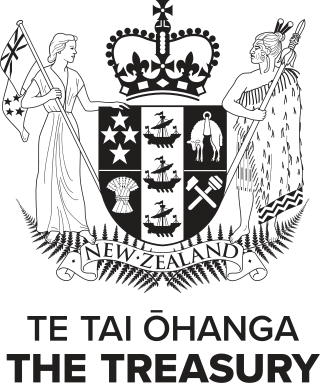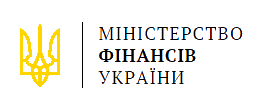
The Department of the Treasury (USDT) is the national treasury and finance department of the federal government of the United States, where it serves as an executive department. The department oversees the Bureau of Engraving and Printing and the U.S. Mint. These two agencies are responsible for printing all paper currency and minting coins, while the treasury executes currency circulation in the domestic fiscal system. The USDT collects all federal taxes through the Internal Revenue Service; manages U.S. government debt instruments; licenses and supervises banks and thrift institutions; and advises the legislative and executive branches on matters of fiscal policy. The department is administered by the secretary of the treasury, who is a member of the Cabinet. The treasurer of the United States has limited statutory duties, but advises the Secretary on various matters such as coinage and currency production. Signatures of both officials appear on all Federal Reserve notes.

The government budget balance, also referred to as the general government balance, public budget balance, or public fiscal balance, is the difference between government revenues and spending. For a government that uses accrual accounting the budget balance is calculated using only spending on current operations, with expenditure on new capital assets excluded. A positive balance is called a government budget surplus, and a negative balance is a government budget deficit. A government budget presents the government's proposed revenues and spending for a financial year.

The treasurerof Australia, also known as the Federaltreasurer or simply the treasurer, is the minister of state of the Commonwealth of Australia charged with overseeing government revenue collection, federal expenditure and economic policy as the head of the Department of the Treasury. The current treasurer is Jim Chalmers, who was appointed by Prime Minister Anthony Albanese in May 2022 following the 2022 Australian federal election.

The Federal Ministry of Finance, abbreviated BMF, is the cabinet-level finance ministry of Germany, with its seat at the Detlev-Rohwedder-Haus in Berlin and a secondary office in Bonn. The current Federal Minister of Finance is Christian Lindner (FDP).

The state auditor of Minnesota is a constitutional officer in the executive branch of the U.S. state of Minnesota. Nineteen individuals have held the office of state auditor since statehood. The incumbent is Julie Blaha, a DFLer.
A government budget is a projection of the government's revenues and expenditure for a particular period of time often referred to as a financial or fiscal year, which may or may not correspond with the calendar year. Government revenues mostly include taxes while expenditures consist of government spending. A government budget is prepared by the government or other political entity. In most parliamentary systems, the budget is presented to the legislature and often requires approval of the legislature. Through this budget, the government implements economic policy and realizes its program priorities. Once the budget is approved, the use of funds from individual chapters is in the hands of government ministries and other institutions. Revenues of the state budget consist mainly of taxes, customs duties, fees and other revenues. State budget expenditures cover the activities of the state, which are either given by law or the constitution. The budget in itself does not appropriate funds for government programs, hence need for additional legislative measures. The word budget comes from the Old French bougette.

The New Zealand Treasury is the central public service department of New Zealand charged with advising the Government on economic policy, assisting with improving the performance of New Zealand's economy, and managing financial resources. The Minister responsible for the Treasury is the Minister of Finance of New Zealand; however, from 1996 to 2002, there existed a more specific position of Treasurer of New Zealand. The role was created for Winston Peters by the Fourth National Government under Jim Bolger after the 1996 election, and abolished by Helen Clark’s government in 2002.

The Department of Finance is the executive department of the Philippine government responsible for the formulation, institutionalization and administration of fiscal policies, management of the financial resources of the government, supervision of the revenue operations of all local government units, the review, approval and management of all public sector debt, and the rationalization, privatization and public accountability of corporations and assets owned, controlled or acquired by the government.

The Ministry of Finance is a ministry within the Government of India concerned with the economy of India, serving as the Treasury of India. In particular, it concerns itself with taxation, financial legislation, financial institutions, capital markets, centre and state finances, and the Union Budget.

The Department of Finance is a key ministry that manages the state finances and economy of the State of Kerala. The department is headed by a senior minister who has cabinet ranking as per Indian Cabinet Protocol Laws. The state assembly rules of 1966 ranks the department and its minister as number 3 in official rankings after Chief Minister and Opposition Leader.

The Ministry of Finance is the government ministry responsible for the finances of Vietnam, including managing the national budget, tax revenue, state assets, national financial reserves and the finances of state corporations. The Ministry manages the work of national accounting, state borrowing, the activities of stock markets, and the Department of Customs. Ministry main offices are located in Hanoi.
Public budgeting is a field of public administration and a discipline in the academic study of public administration. Budgeting is characterized by its approaches, functions, formation, and type.

The Office for Budget Responsibility (OBR) is a non-departmental public body funded by the UK Treasury, that the UK government established to provide independent economic forecasts and independent analysis of the public finances. It was formally created in May 2010 following the general election and was placed on a statutory footing by the Budget Responsibility and National Audit Act 2011. It is one of a growing number of official independent fiscal watchdogs around the world.

The Ministry of Finance of Ukraine is the ministry of the Ukrainian government charged with developing and implementing national financial and budget policies, and with defining national policies in customs and taxation. The ministry is responsible for ensuring that the state has enough resources to perform its functions and that financial policies promote economic growth.
Fiscal policy are "measures employed by governments to stabilize the economy, specifically by manipulating the levels and allocations of taxes and government expenditures". In the Philippines, this is characterized by continuous and increasing levels of debt and budget deficits, though there were improvements in the last few years of the first decade of the 21st century.
Fiscal sustainability, or public finance sustainability, is the ability of a government to sustain its current spending, tax and other policies in the long run without threatening government solvency or defaulting on some of its liabilities or promised expenditures. There is no consensus among economists on a precise operational definition for fiscal sustainability, rather different studies use their own, often similar, definitions. However, the European Commission defines public finance sustainability as: the ability of a government to sustain its current spending, tax and other policies in the long run without threatening the government's solvency or without defaulting on some of the government's liabilities or promised expenditures. Many countries and research institutes have published reports which assess the sustainability of fiscal policies based on long-run projections of country's public finances. These assessments attempt to determine whether an adjustment to current fiscal policies that is required to reconcile projected revenues with projected expenditures. The size of the required adjustment is given with measures such as the Fiscal gap. In empirical works, weak and strong fiscal sustainability are distinguished. Differences are related to both econometric techniques used for examination and variables involved.

The Ministry of Economy and Finance, also known by the acronym MEF, is a ministry of the Italian government. Its responsibilities include overseeing economic policy, public investments and spending. The Ministry's headquarters are located in Rome's historic Palazzo delle Finanze. The current minister in the Meloni Cabinet is Giancarlo Giorgetti.

The Ministry of Finance, abbreviated MOF, is a ministry of the Government of Malaysia that is charged with the responsibility for government expenditure and revenue raising. The ministry's role is to develop economic policy and prepare the Malaysian federal budget. The Ministry of Finance also oversees financial legislation and regulation. Each year in October, the Minister of Finance presents the Malaysian federal budget to the Parliament.
Finance Department is a department of Government of Punjab, Pakistan. The Finance Department is responsible for supervision and control of provincial finances, preparation of provincial budget, formulation of Financial Rules, management of public debt.

The Ministry of Finance is an Indonesian government ministry responsible for the nation's finance and state assets. The Finance Minister is responsible to the President. The ministry's motto is Nagara Dana Rakça, which means "guardian of state finance".














